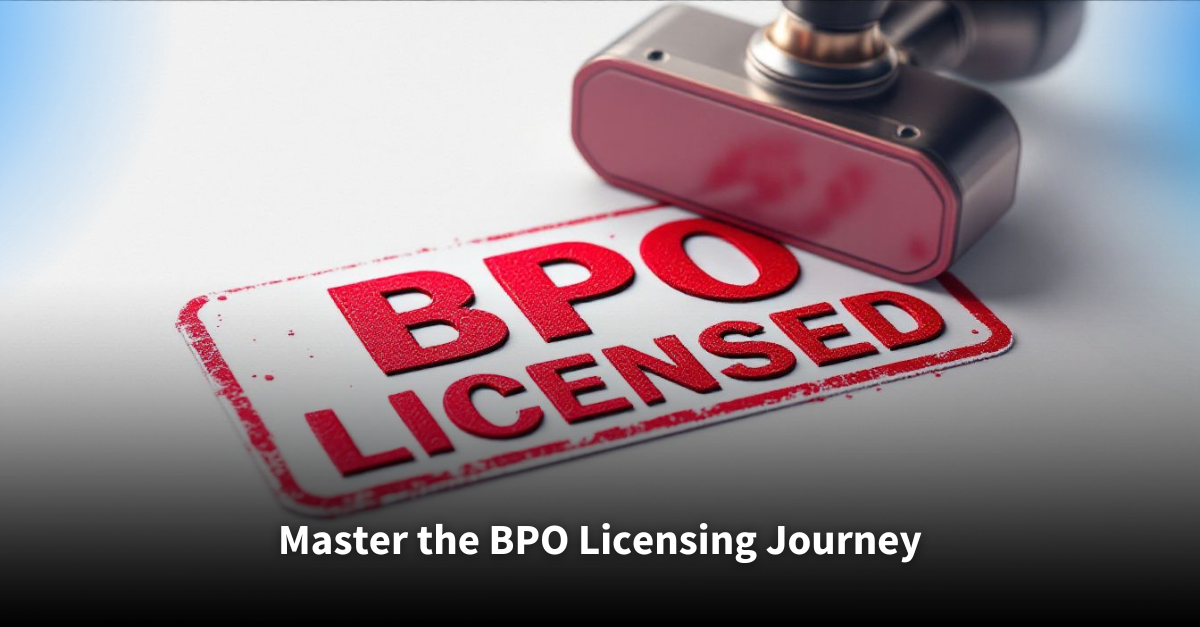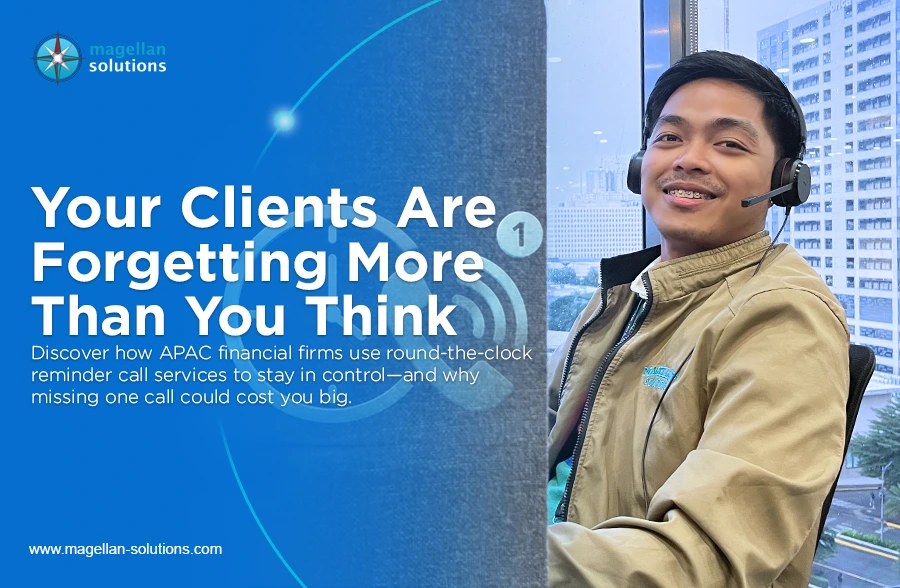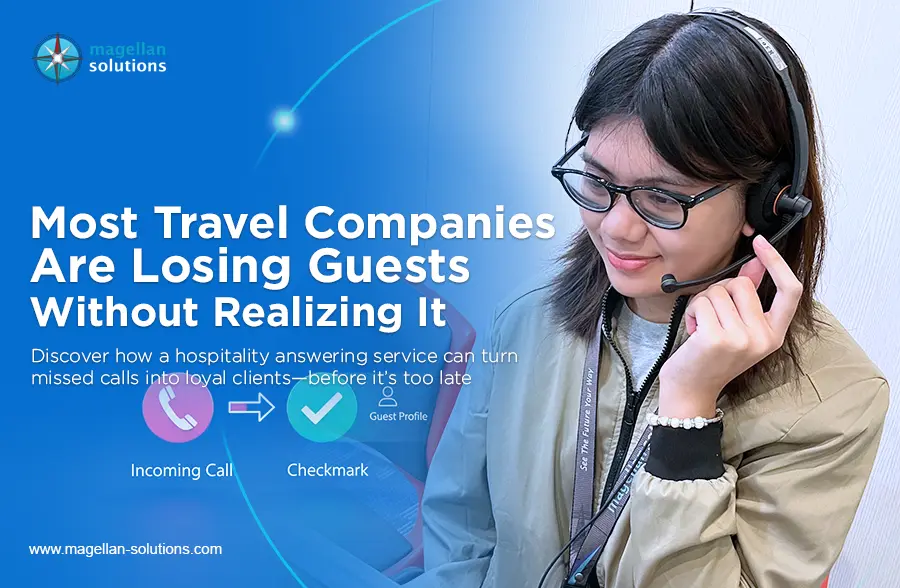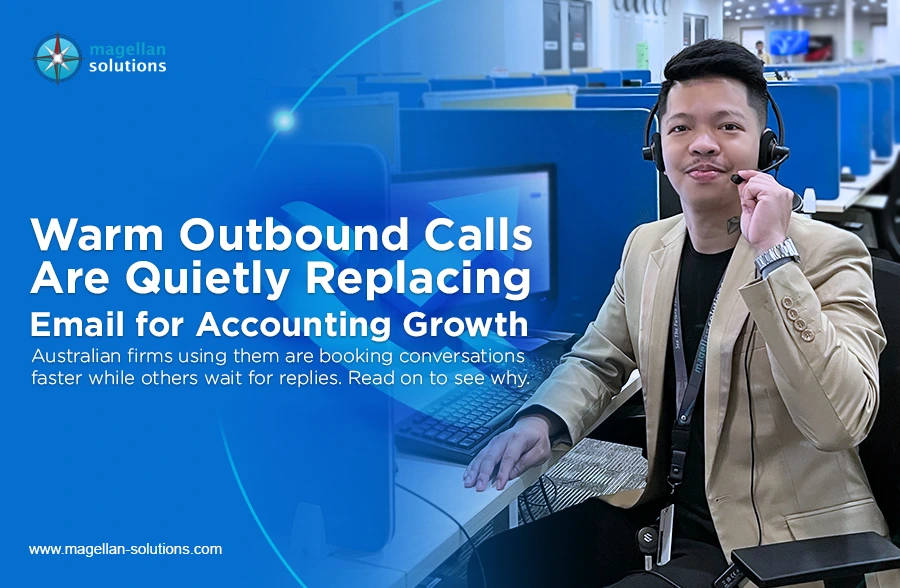Schedule a FREE call with our outsourcing expert now and get a precise quotation that meets your requirements. Don't wait - get started today!
Starting a BPO (business process outsourcing) company can seem like a great opportunity, but before diving into operations, there’s one important step you can’t overlook: obtaining a BPO license. Think of it as your company’s official “permission slip” to operate legally and gain credibility in the outsourcing world. A BPO license not only assures clients that your business is trustworthy, but it also helps you avoid potential legal and operational hiccups down the road.
Whether you’re launching a startup or growing your existing SME, understanding the BPO licensing process is key to a smooth and successful operation. Ready to learn how to make your BPO business official? Let’s break down everything you need to know.
Why a BPO License is Essential for Your Business
Before diving into the application process, let’s first understand why a BPO license is necessary. A BPO license is issued by government authorities or regulatory bodies to ensure that your business complies with local laws and industry standards. It helps protect you and your clients by ensuring your business operations are legal and trustworthy.
What is a BPO License?
A BPO license is a legal document that authorizes a business to engage in outsourcing activities. It allows you to provide services like customer support, IT outsourcing, telemarketing, and more. Without this license, your company might face penalties, fines, or even the shutdown of operations.
Who Needs a BPO License?
Small and medium enterprises (SMEs) providing outsourcing services are the most likely to need a BPO license. This includes businesses offering customer service, tech support, telemarketing, and other outsourcing solutions. If your company plans to handle clients’ operations, processes, or customer interactions, securing a BPO license is necessary.
Understanding the BPO License Application Process
Getting a BPO license is not an overnight process. Depending on where you are, the steps and requirements can vary. Let’s break down the general process involved in obtaining a BPO license for your business.
1. Know the Requirements
Before applying for a BPO license, meet the requirements set by the local government or regulatory body. This often includes having a registered business, a physical address, and a proper business plan outlining your services.
For example, in some regions, a business purposes-only license may be needed to operate your BPO services legally.
2. Submit Your Application
The next step is applying for your BPO license. The application might require detailed information about your company, including ownership details, financial status, and operational scope. Some jurisdictions may also ask for a law firm’s assistance to ensure everything is in order before submission.
3. Pay the Fees
There are usually application fees associated with obtaining a BPO license. These fees vary depending on your location, so it’s important to check with the relevant local authorities.
4. Wait for Approval
You must wait for approval after submitting your application and paying the fees. Depending on the jurisdiction, this can take several weeks to months. Keep your business operations within the legal framework while waiting for your BPO license to be processed.
Different Types of BPO Licenses and Restrictions
When applying for a BPO license, it’s essential to be aware of the different types of licenses and any restrictions that might apply to your business. Let’s explore some of these.
-
Restricted Licenses
Some BPO licenses are restricted. These licenses limit the scope of services a company can offer. For instance, you may only provide certain outsourcing services under a restricted license. Understanding these restrictions before applying is important, as violating them can lead to legal consequences.
-
Hardship License
If you cannot meet all the requirements for a full BPO license, you might be able to apply for a hardship license. This license grants limited privileges to operate temporarily while you work toward meeting all the necessary criteria for a full license.
-
Church and Medical Purposes License
In some jurisdictions, you may need a separate license for BPO services provided for specific purposes, such as church and medical purposes. This specialized license might be required if your business focuses on providing outsourced services to religious or healthcare organizations.
Key Considerations for SMEs in the BPO Industry
As an SME, there are a few additional factors to consider when applying for a BPO license. These factors can help you avoid unnecessary complications and streamline the process.
-
Driving Privileges and Job Driving Licenses
If your BPO services require transportation for employees (for example, delivering services to clients or transporting employees to specific locations), you may need to apply for job driving licenses or driving privilege permits for your drivers. A restricted license may apply if the vehicle is only used for business purposes or specific operational tasks.
-
DUI Arrests and Restrictions
If any of your employees have been arrested for driving under the influence (DUI), this could impact your business’s ability to operate smoothly. Depending on the laws in your area, the employee may face driving restrictions, which could affect their ability to carry out their work-related duties. It’s essential to ensure that your team’s driving privileges are to avoid disruptions to operations.
Common Pitfalls to Avoid When Applying for a BPO License
While the process of getting a BPO license may seem straightforward, there are common mistakes that many SMEs make. These errors can lead to delays, fines, or even the loss of the opportunity to operate legally. Here are some pitfalls to watch out for:
1. Failing to Understand Local Regulations
Every jurisdiction has its own set of rules and regulations for BPO companies. It’s important to understand these regulations thoroughly. If you’re unsure, consulting a law firm that specializes in business licensing can help ensure that your application is correctly filed and meets all local requirements.
2. Underestimating the time frame
Many businesses underestimate how long it can take to obtain a BPO license. The process can be lengthy, so it’s essential to plan and make sure your operations remain compliant during the waiting period.
3. Not Consulting with Experts
If you’re unsure about the application process or need help navigating local regulations, don’t hesitate to seek free consultations from experts. Law firms and business consultants offer free initial consultations to guide businesses through licensing.
BPO Licensing in Your Area: Know Your Options
Every country or region has specific licensing requirements for BPO businesses. Some may have straightforward processes, while others might involve more paperwork and steps. Research local regulations and consider contacting a local expert to guide you.
The BPO license is essential for businesses looking to operate in the outsourcing industry. It ensures compliance, protects your business, and builds client trust. Follow the steps, understand the local regulations, and avoid common mistakes.
Ready to Take Your BPO Operations to the Next Level?
Book your FREE 60-minute business consultation today, and let’s strategize how to elevate your operations—NO COMMITMENTS, just results-driven insights! At Magellan Solutions, we specialize in helping businesses like yours secure the necessary licenses, navigate regulatory requirements, and optimize operations. Let’s turn your business vision into reality with a trusted partner by your side.















